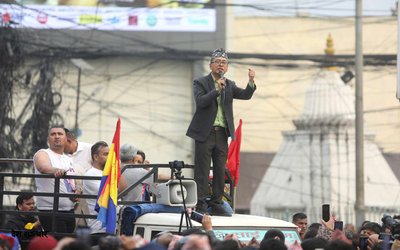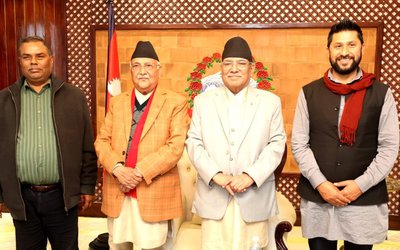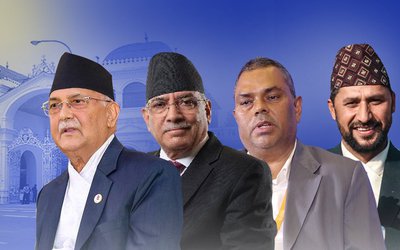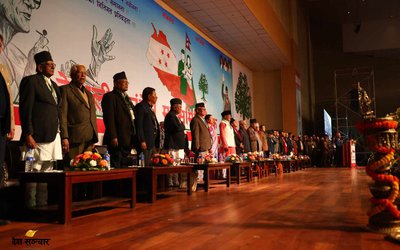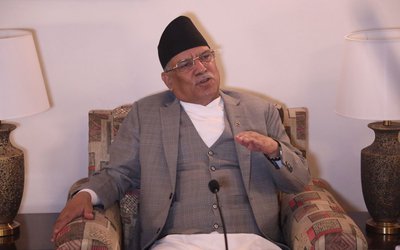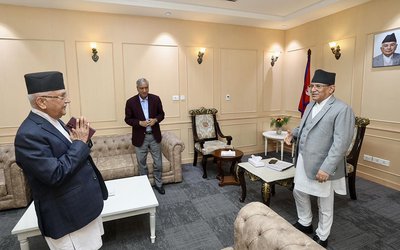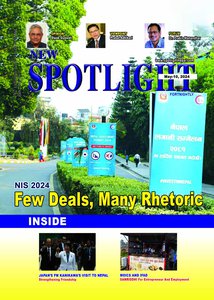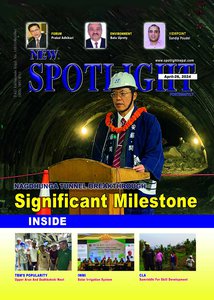From the democratic movements of the 1940s to the People's Movement of 2006, no one can deny that the Nepali Congress (NC) played the role of a torchbearer for democratic changes in Nepal. But the challenge of leading the country and the party towards a better future with visionary policies and wise leadership remains to be overcome. The just concluded 12th National Convention of the NC was crucial in many respects, most of all for the policies and programs that were adopted and the election of the second and third generation leaders. The policy papers provide future directions for the NC in contemporary politics, economic development, international relations and party organization.
At this critical moment of history, for both the nation and the party, the following have been identified as the key challenges in international relations and foreign policy (IR and FP):
Founding Ideals: The NC was founded with the objective of freeing the Nepali people from the injustices of the Rana regime and establishing a democratic, just and prosperous Nepal as a respected member of the international community of nations. To fulfil these goals the NC adopted Nationalism, Democracy and Socialism as its ideological pillars. Like all other policies, the FP of the NC is naturally guided by the understanding of and commitment to these principles. A dynamic political party like the NC is obviously also engaged in shaping the future course of politics, economic and social development, foreign and security policy in tune with national needs and international demands.
After the end of the Cold War the world has changed profoundly. Nepal's two neighbours India and China are emerging as global powers and Nepal itself has undergone dramatic changes. In this new national and international context the NC must reiterate and redefine, if necessary, it's guiding principles so that policies and programs built on the foundation of its ideals can also be articulated clearly and implemented effectively.
FP Principles: Historically, the FP of the NC has been shaped by the strong faith of its founder leader late B.P. Koirala in democracy as the life blood and meaning of existence and hence the underlying essence governing the conduct of relations between nations and among peoples. Calling on the Nepali people to join the revolution in 1949, as a significant foreign policy statement, the NC declared that the party “considers itself as the ardent defender of the full independence and sovereignty of Nepal. Protecting the full independence and sovereignty of Nepal, NC supports the establishment of bilateral relations with other countries of the world...NC does not like foreign interference of any kind, social or economic in Nepal".
For protecting Nepal’s national independence, sovereignty and territorial integrity and promoting the national interests, in government or outside, the NC has pursued a foreign policy of friendship with all and enmity towards none. Full commitment to the principles of the UN Charter, participation in the Non-aligned Movement (NAM), promotion of regional cooperation and active support of the international community in socio-economic development are the other basic tenets of NC’s FP.
Challenges: Highlighting the policy of peace and opposition to war, in Janakpur Convention, late BP declared, "Nepal is opposed to war. NC wants all disputes settled through dialogue, respect for international organizations like the United Nations and end of policies of imperialism and colonialism."
The current peace process for ending violence and autocracy and restoring peace and democracy under the leadership of late G. P. Koirala is the continuation of the original ideals of opposition to war and violence, commitment to peace and democracy. Based on these principles the following are the main foreign policy challenges and priorities of Nepal and the NC:
"Managing relations with India and China
"Active role in the United Nations, particularly in peace and development
"Strengthening relations with South Asia and Asia through active participation in regional organizations like SAARC, BIMSTEK and SCO
"Consolidating relations with traditional friends, the United Kingdom, the
United States of America, members of the European Union including Germany and France, Japan, Russia, Canada, Switzerland, Norway etc; the NC government recently established embassies in Canada, Denmark, Israel, and Australia and will consider establishing new resident embassies in the remaining G-8 capital Italy and the third important UN centre Vienna.
"Expanding relations with developing countries; the NC government established new resident embassies in Brazil and South Africa and will consider establishing resident embassies in the remaining G-20 capitals in addition to SAARC members Afghanistan, Bhutan and the Maldives where there are no resident embassies as well as in one of the countries of the energy rich and strategically important Central Asia.
"Participation in the NAM, international and regional organizations and other initiatives promoting international peace and development
"Development diplomacy with focus on foreign aid, expansion and diversification of trade, transfer of technology as well as promotion of tourism, foreign investment and employment
"Strengthening relations with the World Bank, IMF, ADB and the WTO as well as INGOs to expand the assistance of these organizations in economic and social development, particularly in areas of national priority such as infrastructure development, poverty reduction and trade.
"Employment promotion and services to Nepali workers must be one of the main priorities of Nepali missions and embassies. With this objective, the NC government established new resident embassies in countries such as Malaysia, Kuwait, United Arab Emirates, Israel and the Republic of Korea as well as added labour attaches in countries with large number of Nepali workers. The effectiveness of these new arrangements needs to be evaluated and necessary steps taken to expand/improve on them.
"Support the Middle East peace process, call on all nuclear weapons states to eliminate such weapons, support the right of the Bhutanese refuges to return to their country with dignity and moral support to all struggles of people for democracy and human rights
"Protecting Nepal's rich bio-diversity from the adverse effects of global climate change as well as compensation for the contribution made by Nepal's forestry sector in offsetting carbon-emissions
"Leadership in bringing all major national actors together for consensus on matters of Nepal’s vital national interest, security and foreign policy
Facing the Mother of all Challenges: Transforming a society trapped in a quagmire of conflict among the forces of extremism and authoritarianism by conceptualizing and strengthening the idea of a new peaceful national democratic progressive political centre has never been easy ever, anywhere. This is particularly difficult in Nepal at this particular moment due to the strategic location, changing South Asian and Asian political, economic and security environment amidst the prevailing global paradigm flux.
The successful People's Movement of 2006 under the leadership of NC President and Prime Minister G. P. Koirala brought Nepal to a new threshold. Success of the peace process will create a new history of not just transforming violent internal political conflict peacefully but a new model of peaceful political change. It will emphatically establish people’s power as the only legitimate and lasting means of political change, end the political transition, bring stability, enhance Nepal's place in the international arena with a renewed sense of optimism at home and ability to pursue a forward looking foreign policy abroad.
Institutionalizing peace and democracy through the meaningful conclusion of the peace process, promulgating the new Constitution, holding free and fair election and handing over power to a new democratic dispensation under the new constitution is the mother of all challenges to Nepal, the NC and Nepal's real friends and well wishers. The successful PMII demonstrated the ability of NC leaders to convince national and international actors and the Nepali people to support their vision of change. It is up to the present NC leaders to comprehend the implications of the changes their predecessors helped to bring and fulfil the promise of a sovereign, independent, democratic, peaceful and prosperous Nepal for all Nepalis.
(Dr. Simkhada was a member of the international relations and foreign policy sub-committee of the main committee responsible for preparing the policy and program for the 12th National Convention of the NC. He is also former Permanent Representative to the United Nations, Geneva, Ambassador to Switzerland and Visiting Professor Geneva School of Diplomacy.)
- NIS 2024: Few Deals, Many Rhetoric
- May 12, 2024
- LATE SAMBHU PRASAD GYAWALI: Legendry Lawyer
- May 03, 2024
- TBM’S POPULARITY: Upper Arun And Dudhkohshi Next
- May 02, 2024
- QATAR AMIR’S STATE VISIT: Five Agreements
- Apr 28, 2024
- BIPIN JOSHI: Call For Release
- Apr 21, 2024

